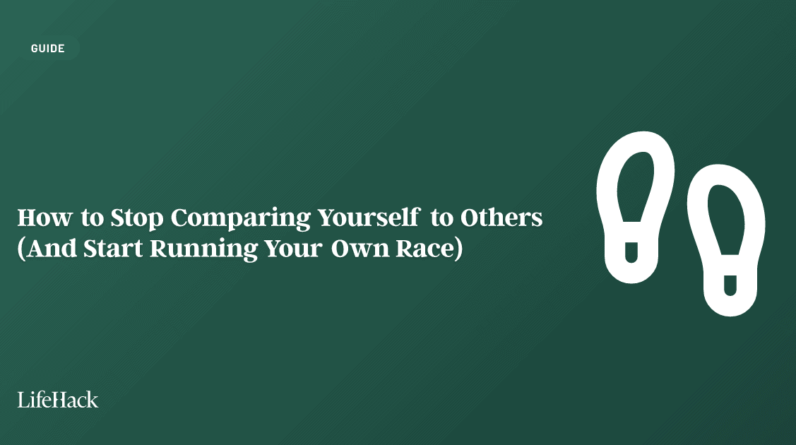
I have talked to many people whose relationships have ended because they felt like “they were doing everything”.
Over time, they started to resent their partners and became exhausted until they wanted out.
This is not uncommon.
Unfortunately, we don’t always see the signs, or we do but don’t know how to fix the relationship and retain balance until it’s too late.
Some signs of imbalance in a relationship include:
- One person doing everything around the house
- Feeling insecure
- Sense of unfulfillment
- One person always apologizes
- Financial imbalance
- One person makes all the decisions
- Sacrificing one’s desires
- One person always making excuses
Imbalance in a relationship can be draining both physically and mentally.
Maintaining balance requires effort, communication, and mutual respect. Here are several key strategies to help keep a relationship balanced.
6 Ways to Create and Maintain the Balance in Your Relationship
Open and Honest Communication
Sometimes, we subconsciously expect our partners to know what we want even when we haven’t communicated our desires.
And, when they prove not to be aware of what we want, we become frustrated and act as though they don’t listen to us when, in reality, we haven’t communicated.
Discuss your thoughts, feelings, and concerns with your partner regularly to ensure they don’t build up and result in resentment. If you want your partner to do more around the house, tell them.
On the same note, practice active listening by paying your full attention and validating your partner’s feelings when they communicate their concerns to you.
Turn off the defense mode and really try to see things from their perspective.
How to Provide Constructive Feedback Without Being a Jerk→
Respect and Acknowledgement
As we spend more time with our partners, we become very familiar and unfortunately, in some cases, the respect we have for them fades away.
This is not the way to go.
When we aren’t respected and are undermined, we withdraw and drag our own part because we feel underappreciated.
Acknowledge your partner’s efforts even when you think they should be doing more. That acknowledgement and respect can be uplifting and encourage them to do more.
Work on respecting each other’s opinions, even if they differ from your own.
Clearly Outline Responsibilities
In some cases, tasks are not completed because one partner thinks the other is getting it done.
There are a lot of assumptions, and in some cases, only one person ends up doing everything. Over time, they become tired and start to feel like their partner is not doing their part.
Clearly outline the tasks and share household chores and responsibilities fairly.
That doesn’t mean you have to alternate doing everything. In some cases, you will find that your partner enjoys doing some things you don’t like, so they can stick to that.
However, it is essential to ensure that both partners contribute to the relationship in meaningful ways.
Quality Time Together
The importance of quality time can never be overstated.
Spend time together engaging in activities you both enjoy. This will allow you to get closer and build trust.
Spending time with your significant other allows you to learn more about them, and it creates an environment where you can learn of their expectations.
Discuss Finances
It is too bad that this important topic is considered taboo in many cultures.
While finances are a sensitive topic, they are also a big contributor to relationships that do not work out well. Once you see that there is a good possibility that you will get into a serious commitment, discuss finances.
Talk about your financial habits and goals.
Ensure you’re on the same page regarding how you want to handle your finances, spending and savings. Setting financial goals will also help you work towards a goal together as a team.
Talk About Goals and Values.
Our values shape who we are, and our goals direct our paths.
Pretending these two are not big factors in our relationships will be hypocritical. I believe personal values and goals should be discussed in the early stages of a relationship as they act as a compass directing where we are going.
Aligning on long-term goals and values, such as career ambitions, family planning, and lifestyle choices, makes it easy for the two of you to work together towards those goals.
However, in some cases, we have different goals, and that is okay.
As long as your partner understands you and where you are heading and is happy to support you along the way, they will pull their weight and give you the support you need.
For instance, one partner’s goal might be to lose weight. That doesn’t mean both of you have to lose weight, but the other person can support their partner’s goal by ensuring there are more healthy snacks in the house, choosing healthier food options when eating out, etc.
Happy Relationships Take Work: Are You Really Doing Your Share?→
You Both Have to Do the Work
Balanced relationships require work from both parties.
The techniques on here won’t be very effective if implemented by only one person, hence the first one is communication, which is a two-way street.
Regularly check in with each other and reflect on your relationship to see how you can make it better for everyone. It is also essential to remember that relationships are a work in progress and in some cases, they take longer to work out than others.
Another important thing to note is the fact that each relationship is different.
Comparing your relationship to that of your favorite Instagram couple won’t do you much good. Spend time with and get to know your partner so you two can figure out what works best for you.
Are You Accepting Your Partner for Who They Truly Are?→
Photo by SHVETS production







